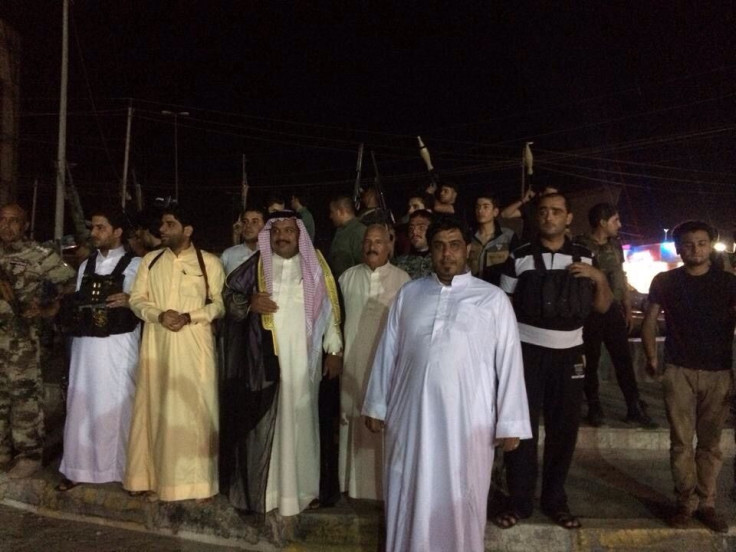Sunni Tribal Fighters in Ramadi Face New ISIS Onslaught As Militants Retreat From Tikrit

ISTANBUL -- Sunni tribes in the Iraqi city of Ramadi began their largest battle yet with the Islamic State group Thursday, with the militant group losing the city of Tikrit and relocating its surviving fighters there to Anbar province. The battle is important because it shows the group formerly known as either ISIL or ISIS retains the ability to move fighters within Iraq in response to setbacks -- and because it's being fought over an economically important city.
If the Islamic State group were to take Ramadi, it "will control a main trade route," said Aref Mukhbar Saiad Al-Alwani, the deputy governor of Anbar. "It is one of the most prominent and commercial transport routes for delivering oil to neighboring countries. ISIS trade would flourish."
Thursday, the Islamic State group detonated several car bombs in Anbar, killing dozens of civilians. The situation in Ramadi will likely only grow worse, Alwani said, because the militant group is now focusing all of its efforts on Anbar province, as well as some parts of Iraqi Kurdistan near Kirkuk.
The infiltration of Islamic State group members in Ramadi by way of Tikrit comes after weeks of fighting in villages throughout Anbar province between the extremist group and Sunni tribal fighters. Since the beginning of February, the Sunni tribes, in coordination with the Iraqi military, have attempted to stop the militant group from advancing in the region and from reaching the Ain al-Asad air base, where U.S. personnel are stationed.
Tribal leaders also said they have not yet received any shipments of weapons promised by the U.S., and they will have to fight with the limited arsenal of arms they received from Iraqi army soldiers who fought with the U.S. against al Qaeda in 2007.
"In the Ain al-Asad air base in al-Baghdadi, U.S. forces are training security forces and tribes on how to fight ISIS inside alleys," Alwani said. "Most of the Iraqi army commanders we are working with are trained to fight in the desert and lack the experience of fighting in the streets."
The success of the Sunni Awakening operation targeting al Qaeda in Anbar in 2007 prompted the U.S. to try replicating it against the Islamic State group in 2015. The U.S. was supposed to provide the Sunni tribes in Anbar with weapons to fight the militant group through the Iraqi military. But the weapons never reached Anbar, in part because officials within the military are holding them in Baghdad, although shipments of military gear such as bulletproof vests and helmets have continued.
"So far, we have not received any support from U.S. in terms of arms," Alwani said. As a result, he said, dozens of Sunni fighters have died within the past month.
For now, the Sunni tribes are managing to hold off the Islamic State group and even score some victories with unconventional methods. In a partnership with elite Iraqi military units, tribal fighters are digging tunnels throughout Anbar near the militants' outposts, lining them with explosives and detonating them.
"The current Iraqi army commanders here were commanders or officers in the former Iraqi army. We have good relations with them because they understand very well what we are trying to do," Alwani said.
But the Sunni tribes and the Iraqi military will not win the fight against the Islamic State group in Anbar by themselves, he added, without those American weapons.
The Sunni tribal coalition in Anbar, which consists of a group of five or six tribes, also faces another danger: Wealthy Sunnis in the area are making common cause with the Islamic State group because of their distrust of the Sunni-dominated government in Baghdad.
"ISIS took the vulnerable and marginalized from the Maliki government and took advantage of them," Alwani said, referring to the former prime minister, Nouri al-Maliki, who was notorious for policies directed against Sunnis. "There are some clans or part of tribes that are fighting with ISIS, especially in an area located west of Ramadi. But they are also fighting with the group in al-Karmah and Fallujah."
© Copyright IBTimes 2024. All rights reserved.




















